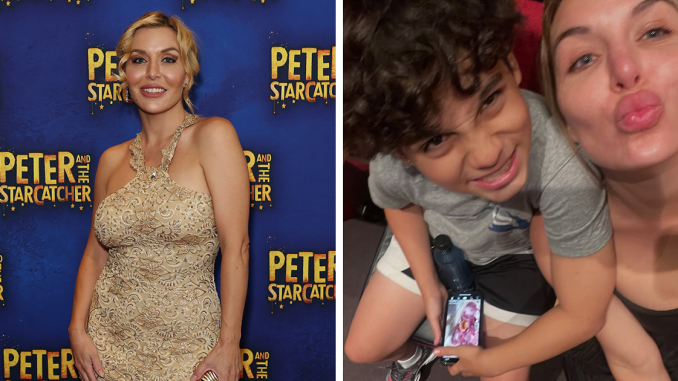
An Australian mother faced with every parent’s worst nightmare, the passing of a child, is now turning to a science fiction-life hope for a second chance at the life of her son—cryogenic preservation.
Actress Clare McCann is desperately trying to raise $195,000 to freeze the body of her 13–year-old son, Atreyu, who tragically took his own life last Friday (May 23). According to the associated fundraiser page, the boy had been the target of “horrific bullying at his public school.”
While, to date, no one has been successfully revived after being cryogenically frozen, the hope of science advancing to the point where it is possible in the future has become McCann’s only refuge from her grief—and time is running out.
Australian actress is raising money to cryogenically preserve her son’s body after he took his own life
Image credits: Don Arnold/Getty Images
“We only have one chance left to cryogenically preserve his body within the next 7 days,” she wrote.
“If we miss this window, we lose the chance for any future revival that science may offer. This is about hope and justice. Refusing to let my son’s story end in silence.”
Image credits: claremccannofficial
Cryonics—the low-temperature preservation of a human body after passing, with the hope of future revival—remains a controversial and largely experimental field. But for grieving parents like McCann, it offers a final, if slim, sliver of hope.
Image credits: GoFundMe
Addressing her critics, McCann said in an interview that her son had previously agreed to the procedure, and said that neither of them took the idea lightly.
“About six or seven years ago, we started talking about the afterlife and heaven and I talked to him a little about cryogenics, and he told me he would like to do that,” she said in an interview with local media.
“Over the years we talked about that—that’s what we would want to do together, never separate. He deserves a second chance to live the life he wanted.”
For McCann, Atreyu’s passing is the result of institutions actively ignoring her warnings about him being bullied
Image credits: Svitlana/Adobe Stock
McCann’s desperation is compounded by a growing sense of impotence, as says she tried everything in her power to notify the school of Atreyu’s declining mental health and bullying problems.
“I have medical records, psychologist reports, a formal PTSD diagnosis from his doctor, and emails proving I raised the alarm repeatedly,” she wrote on her fundraising page.
“But nothing was done. No one stepped in. And now, my beautiful boy is gone.”
Since being launched, the campaign has raised just over $4,750 Australian dollars ($ 3,080 approximately)
Image credits: KPIX | CBS NEWS BAY AREA
McCann assured donors that the money would go toward “immediate cryopreservation and legal transportation,” as well as necessary medical and legal services and a trust in Atreyu’s name “to protect his legacy.”
Once the aforementioned process is complete, any leftover funds would go towards supporting anti-bullying educations as well as to pursue legal action against institutions McCann said failed her son.
The likelihood of a person being successfully revived after being frozen depends on technology not yet available
Image credits: BBC Global
Cryonics, as practiced today, is based on preserving the body—especially the brain—at extremely low temperatures in a process called vitrification, which freezes tissues without forming ice crystals that could damage them.
Image credits: claremccannofficial
Companies offering the service argue that if enough of the brain’s structure can be preserved, future medical advancements may allow full revival.
One of such companies, Alcor, assures potential customers that “life can be stopped and restarted if its basic structure is preserved,” but recognizes that the likelihood of that happening depends entirely on nanotechnology being one day able to “repair damage at the molecular level.”
Image credits: claremccannofficial
Critics argue that these claims stretch the boundaries of science and ethics, and are ultimately a gamble that seeks to prey on people’s fears, grief, and desire to prolong their existence. To date, no human has ever been revived after cryopreservation.
Despite this, the service has turned into a profitable business.
Image credits: claremccannofficial
According to tissue preservation company Cryonics Institute, to date, over 100 people have been cryopreserved, and more than 1,000 have signed up to be preserved in the future—many using life insurance policies to cover the cost.
When asked about any mammal being successfully cryopreserved and revived, the company recognizes that only some organs have completed the process, and that “no whole mammal” has been revived.
“We believe that the damage caused by current cryopreservation is limited and hopefully can someday be repaired in the future.”
